Introduction
Vietnam is a country with often-unrecognized natural and cultural riches that go far beyond the usual clichés. The national parks are vast biodiversity sanctuaries that offer profound and unique travel experiences. In these protected areas, nature prevails, and ancestral traditions are maintained, inviting a genuine reconnection with the world.
Visiting these parks means immersing oneself in fragile ecosystems, meeting local communities, and embracing sustainable tourism that preserves these places while also supporting their populations.
Cat Tien National Park
Located in the heart of a lush jungle, this park is an invitation to adventure.
.jpg) Gibbons in Cat Tien National Park - Mr Linh's Adventures
Gibbons in Cat Tien National Park - Mr Linh's AdventuresMain activities
Trekking is the ultimate way to explore the park. The trails wind through a
vibrant jungle, offering hikers a complete immersion in nature.
Paths to the
ancient 500-year-old pine tree or along
Heaven's Rapid provide more than just a simple route; they are sensory journeys where each step reveals nature's secrets.
The
nocturnal safari transforms exploration into a mysterious adventure. As day turns to night, the jungle comes alive with a secret world, revealing its most discreet inhabitants—mammals, reptiles, and insects that move in the shadows.
The
Crocodile Lake, a jewel of
biodiversity recognized by UNESCO, is a sanctuary where nature reigns supreme. It is accessible via a combination of jeep and hiking and offers exceptional encounters with endangered species.
Visitors can also enjoy
cycling and
water activities to discover the park at their own pace.
History, natural, and cultural assets
Created in 1992, the park was recognized as the 411th World Biosphere Reserve by UNESCO in 2001. Its wetland system was added to the Ramsar list in 2005. Despite damage from defoliants during the war, the ecosystem has remarkably regenerated. The park is home to extraordinary biodiversity, with over 1,610 plant species, 103 mammal species (including bantengs, elephants, and tigers), and 348 bird species. The park is also home to the S'tieng and Ma communities. They live along the Dong Nai River, where they perpetuate ancient traditions in harmony with their environment.
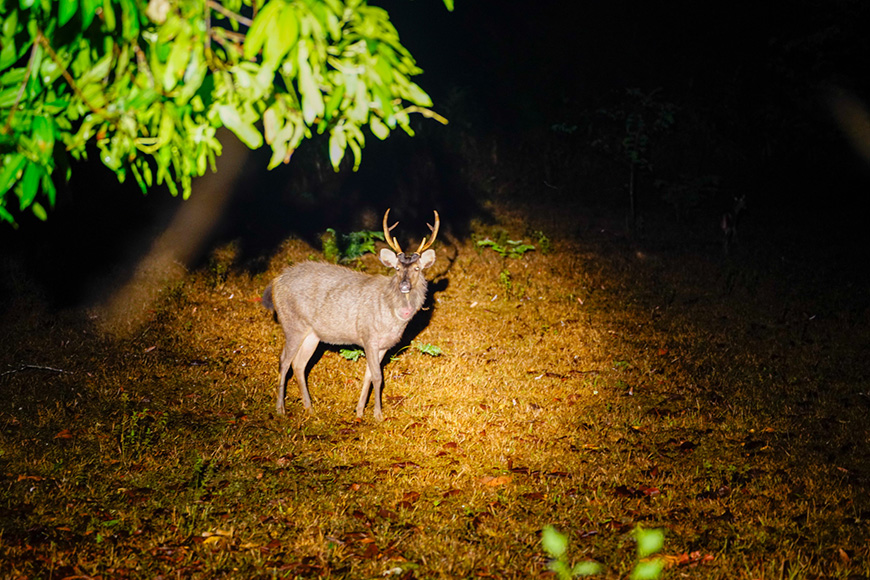 Nocturnal safari : into the wild ! Mr Linh's Adventures
Nocturnal safari : into the wild ! Mr Linh's AdventuresCat Tien, practical information
Access: From Ho Chi Minh City: take a direct bus to Tan Phu town, then a taxi or motorbike to the entrance. The journey takes about 4-5 hours.
Ideal time to visit: December to May (dry season). During these months, the weather is pleasant, with cooler, more comfortable temperatures, and the hiking trails are easily accessible and less muddy. This period also coincides with an increased frequency of wildlife sightings, as animals are more active and visible near water sources.
Entry fee: 60,000 VND (~€2.5), which includes the ferry.
Accommodation: Bungalows at $15-70/night, camping at €2-8, and high-end lodges up to €120/night.
Yok Don National Park
Yok Don stands out for its revolutionary approach to elephant tourism, offering ethical and respectful observation of these animals in their natural environment since 2018.
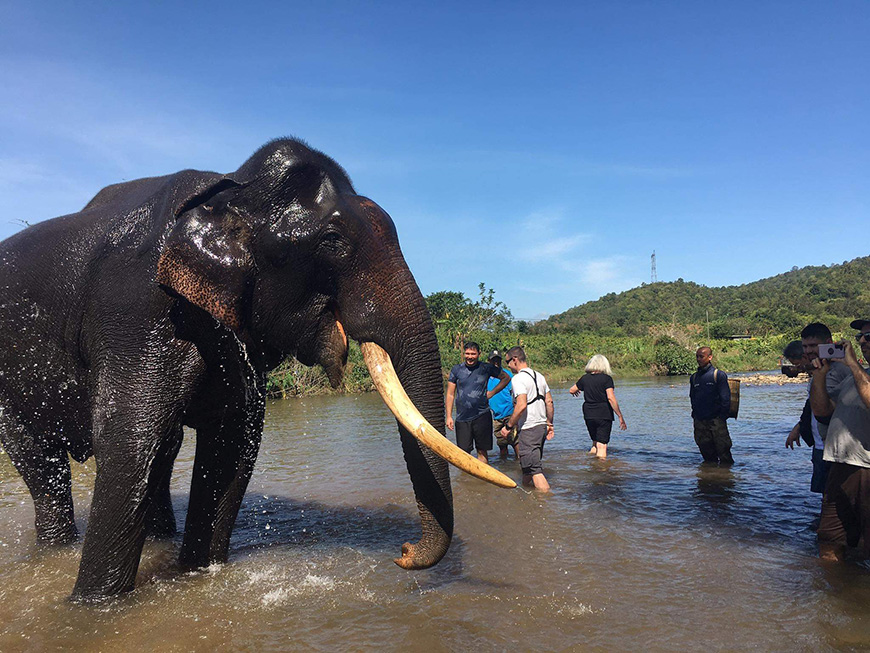 Yok Don National Park is famous for its elephants - Mr Linh's Adventures
Yok Don National Park is famous for its elephants - Mr Linh's AdventuresMain activities
The park's main attraction is its revolutionary approach to elephant tourism. Since 2018, the park has transformed its philosophy by offering ethical and respectful observation of these magnificent creatures in their natural environment.
Visitors can now learn about the elephants' natural behavior, ecology, and personality without intrusive practices like riding.
Nature lovers will find plenty to enjoy through the many outdoor activities. Hikes in the dipterocarp forest offer a rich exploration with trails suitable for all levels.
Climbing Mount Yok Don, the highest point at 482 meters, promises breathtaking panoramic views of the surrounding ecosystem.
Cycling and boat trips on the Sêrêpôk River provide a more relaxed way to discover the area, while bird and wildlife watching offer enthusiasts privileged moments of observation.
Cultural immersion is another highlight of Yok Don. The village of Don invites visitors to discover the traditional architecture of the Ede longhouses, meet the locals, and share authentic moments. Local cooking classes and musical evenings with traditional gongs allow for a deep connection with the local culture.
History, natural, and cultural assets
Created in 1991, Yok Don is Vietnam's only protected park known for its dry dipterocarp forests. It spans 115,545 hectares and is home to 1,006 plant species and 650 animal species, including Asian elephants.The park is also home to the Ede, M'Nong, and Laos ethnic minorities. The development of ecotourism with the participation of local communities contributes to a sustainable economy while protecting the environment.
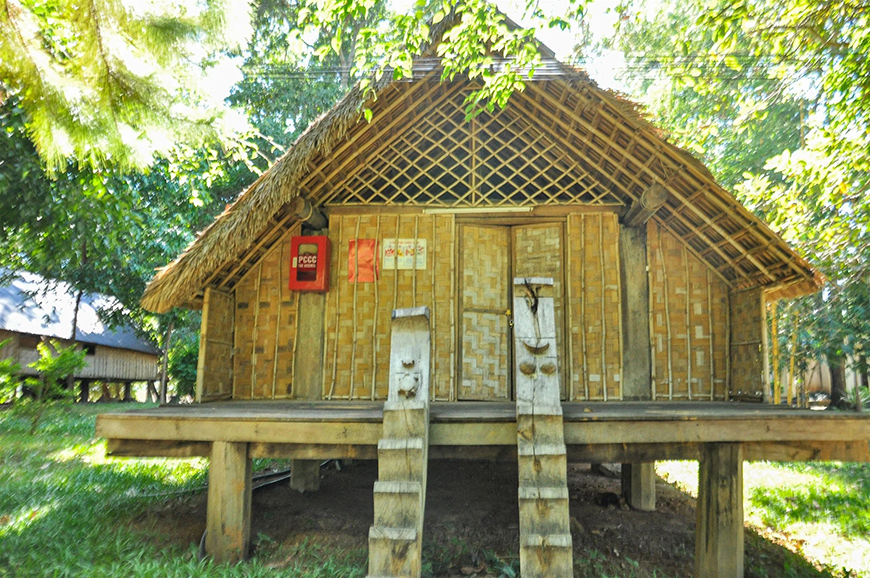 Traditional Ede Longhouse - Mr Linh's Adventures
Traditional Ede Longhouse - Mr Linh's Adventures
Yok Don, practical information
Access: From Buon Ma Thuot: take a local bus (1 hour) or a taxi (40km). There are several daily departures.
Ideal season: The dry season, from October to April, is the best time for hiking in the park. Temperatures are more pleasant, ranging from 22°C to 30°C, which makes outdoor activities more comfortable. While the park is beautiful in April, it can be even lusher if you visit around October or early November, just after the rainy season. The wet season, from May to October, is characterized by rain, but the vegetation is at its peak, offering a lush, green spectacle.
Entry fee: 60,000 VND (~€2.2).
Accommodation: Park lodge (350,000 VND/night, approx. €15 with breakfast), tents, or homestays. There is also the possibility of bivouac or hammock stays with a guide.
Phong Nha-Ke Bang National Park
Phong Nha-Ke Bang is a paradise for adventurers and a site of exceptional geological and biological importance.
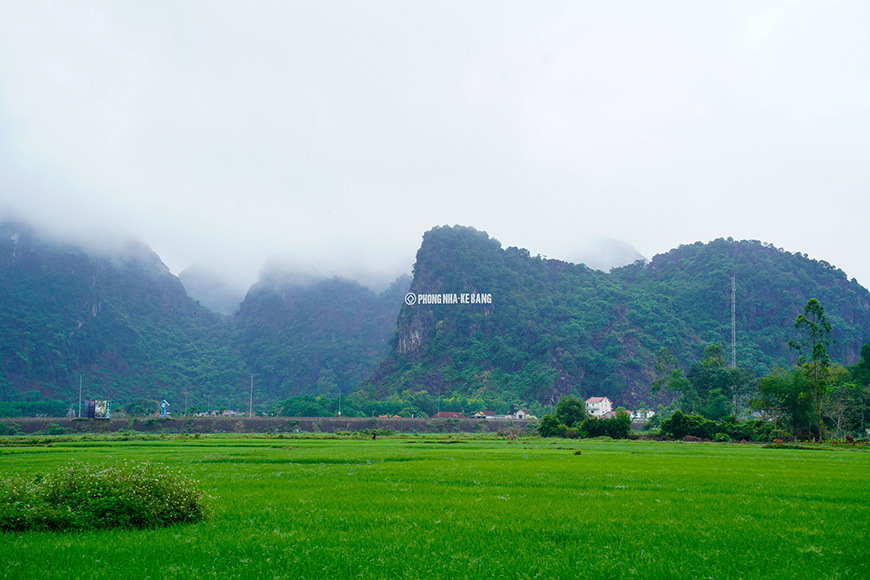 Phong Nha - Ke Bang National Park, a UNESCO Site - Mr Linh's Adventures
Phong Nha - Ke Bang National Park, a UNESCO Site - Mr Linh's AdventuresMain activities:
A wide range of tours are available, from day trips to multi-day expeditions of varying difficulty levels. For example, the Son Doong Cave expedition is a difficult 6-day adventure (75,000,000 VND), while day tours like the Hang Tien Cave Day Trek (2,000,000 VND) are considered easy. Caving is the main draw of this destination, with legendary caves like Son Doong, considered the largest in the world, fascinating explorers. Paradise Cave and Phong Nha Cave offer accessible underground routes with extraordinary geological formations and mysterious subterranean ecosystems. The adventure takes on a fun and unique dimension with the Dark Cave experience, which combines adrenaline and relaxation: a spectacular zip line, an underground swim, and a therapeutic mud bath create a unique moment of self-challenge and well-being.
Hikes in the dense jungle offer total immersion in a preserved natural environment, with river crossings and swims in hidden lagoons that provide pure communion with nature.
Kayaking on the Son River extends this contemplative experience, allowing you to glide silently between breathtaking karst landscapes.
Cycling completes this range of activities, offering visitors the chance to discover the park's magnificent panoramas, green mountains, and mysterious valleys at their own pace and according to their fitness level.
History, natural, and cultural assets
Inscribed on the
UNESCO World Heritage List in 2003, the park is distinguished by its karst formations that have evolved for over 400 million years, making it one of the oldest and largest karst systems in Asia. The park is famous for its cave system, with over 400 caves, including Son Doong, the world's largest, and Hang En. Its
biodiversity is remarkable, housing
15 types of habitats, over
90% limestone tropical forest, and
1,394 animal species, including endangered and endemic species like the Hatinh langur.
.jpg) The well named Paradise Cave - Mr Linh's Adventures
The well named Paradise Cave - Mr Linh's AdventuresPhong Nha-Ke Bang, practical information
Access: From Dong Hoi (airport/train station): take a bus or taxi to Phong Nha village (50km) in 1-1.5 hours. From Hanoi/HCMC: take a train or domestic flight to Dong Hoi, then travel by road.
Ideal season: February to August/September (be aware of rain from October to December). The period from November to April is often preferred for its cooler temperatures, lower humidity, and minimal rainfall, which makes for ideal conditions for cave exploration, hiking, and water activities. The rivers are calm and forest trails are dry, making activities like boating, hiking, and caving more pleasant.
Entry fees: 150,000 VND for Phong Nha cave (approx. €6), 250,000 VND for Paradise Cave (approx. €9), guided tours for more technical caves. Caving tours last 1-4 days depending on the adventure. A shared boat for Phong Nha Cave costs 360,000-400,000 VND.
Accommodation: Eco-lodges, motels in Phong Nha village (€8-50/night).
Ba Be National Park
Ba Be is an ecological gem nestled in the limestone mountains of Northern Vietnam.
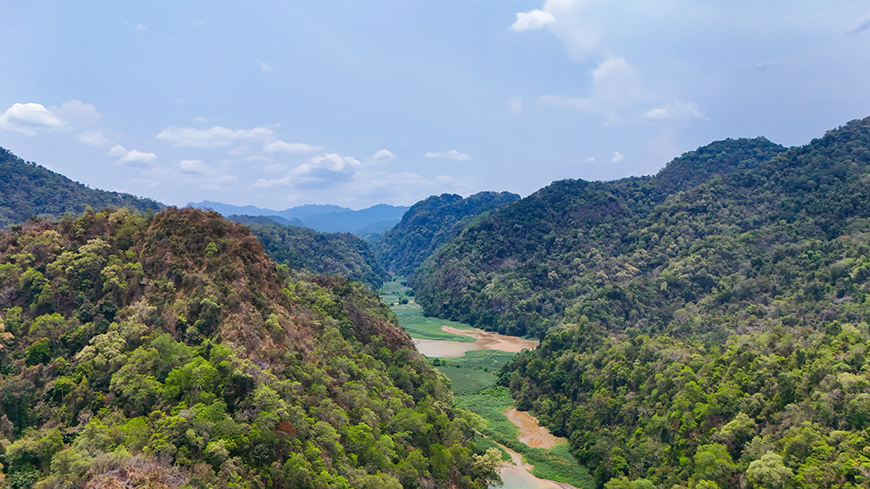 Bird's View of Ba Be National Park - Mr Linh's Adventures
Bird's View of Ba Be National Park - Mr Linh's AdventuresMain activities
A boat trip on the lake and along the Nang River is an almost essential first step at Ba Be Park. Visitors can embark on a rowboat or motorboat, accompanied by a local guide, to visit An Ma Island, Tiên Pond, Puong Cave, and Dau Dang Waterfall. Each of these stops offers a clear view of the karst relief and tropical vegetation that frame the waters.
On land, you can choose to explore the park on foot or by motorbike. The trails lead through terraced rice fields and hamlets like Pac Ngoi and Coc Toc, where you can observe the daily life of local ethnic groups and more discreet rock formations.
Those who prefer cycling will find these same quiet paths to be an accessible and enriching experience, with panoramic views of the surrounding forests and fields.
To get a closer look at the cliffs along the lake, kayaking is a simple and direct option. You can glide along the walls at your own pace, scrutinize the details of the caves, and enjoy an almost total silence.
Finally, speleology enthusiasts can venture into less-known caves than Puong or Hua Ma, always guided by experts, to discover new galleries and underground formations. The most adventurous will embark on the exploration of Tham Phay Cave.
History, natural, and cultural assets
Recognized as an ASEAN natural heritage site, this park was created in 1992 to protect the country's largest natural lake and its karst landscapes, forests, and ethnic villages. In 1995, the lake was designated as one of the 20 special freshwater lakes in the world to be protected, and the park was recognized as a Ramsar site in 2011. The park is home to 909 plant species and 412 animal species, including 66 endangered species. It is also home to the Tay, Dao, and Hmong communities, whose hospitality allows for an authentic cultural immersion.
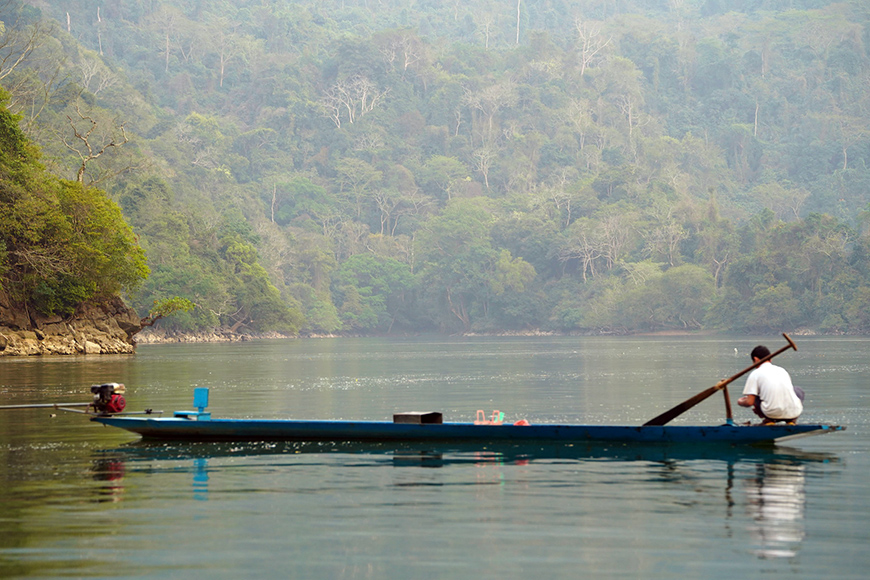 A life along the nang River in Ba Be National Park - Mr Linh's Adventures
A life along the nang River in Ba Be National Park - Mr Linh's AdventuresBa Be, practical information
Access: From Hanoi: take a bus to Bac Kan (4-5 hours), then a minibus or moto-taxi to the park entrance (30km). Another option is a private car.
Ideal season: March-May and September-November. The dry season, from November to April, is generally considered the ideal time to visit Ba Be. During these months, the weather is pleasantly dry and cool, with temperatures ranging from 15°C to 25°C, which is perfect for outdoor activities such as hiking, cycling, and exploring ethnic villages.
Entry fee: 70,000 VND (~€2.5).
Accommodation: Guesthouses, eco-lodges, or stilt houses (homestays) on the lakeside (€10-30/night).
Bai Tu Long Bay National Park
Often perceived as the quieter "sister" of Ha Long Bay, Bai Tu Long is a haven of natural beauty and authenticity. Here, visitors can have a rich and diverse maritime experience, far from the more well-known tourist bustle of Ha Long Bay.
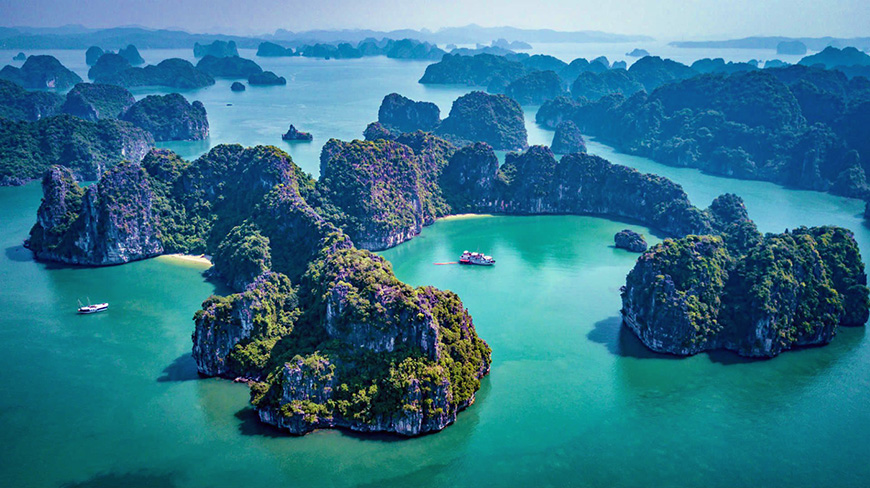 Bai Tu Long, the less-known sister of Ha Long Bay, is home to a rich biodiversity
Bai Tu Long, the less-known sister of Ha Long Bay, is home to a rich biodiversityMain activities
Cruises are the
emblematic experience of this area, offering different options for a deep exploration of this unique maritime landscape. These nautical journeys provide much more than a simple panorama; they invite the discovery of
spectacular caves like
Thien Canh Son and an opportunity to
meet the fishing communities that have shaped local life for generations.
Kayaking offers a more intimate immersion, allowing you to glide silently between majestic
karst formations, follow preserved coastlines, and enter nooks inaccessible to larger boats. This activity allows for a direct and contemplative connection with a maritime environment of striking beauty.
The
beaches of Cai Lim and Minh Chau invite relaxation and swimming in crystal-clear waters, offering moments of pure relaxation.
Fishing is also a traditional activity that visitors can practice, sharing a moment of
local life.
Exploring fishing villages like
Vung Vieng is a unique opportunity to understand an ancestral way of life, discover traditional fishing techniques, and meet communities whose existence is intimately linked to the sea.
History, natural, and cultural assets
Created in 2001, the park covers 15,783 hectares. It is famous for its limestone pillars, caves, and arches, offering a complete example of karst formation over a long geological period. The bay is home to three distinct ecosystems, with a total of 2,415 species. For example, coral reefs are home to 100 species of coral and 110 species of fish, while the islands are home to 507 plant species.
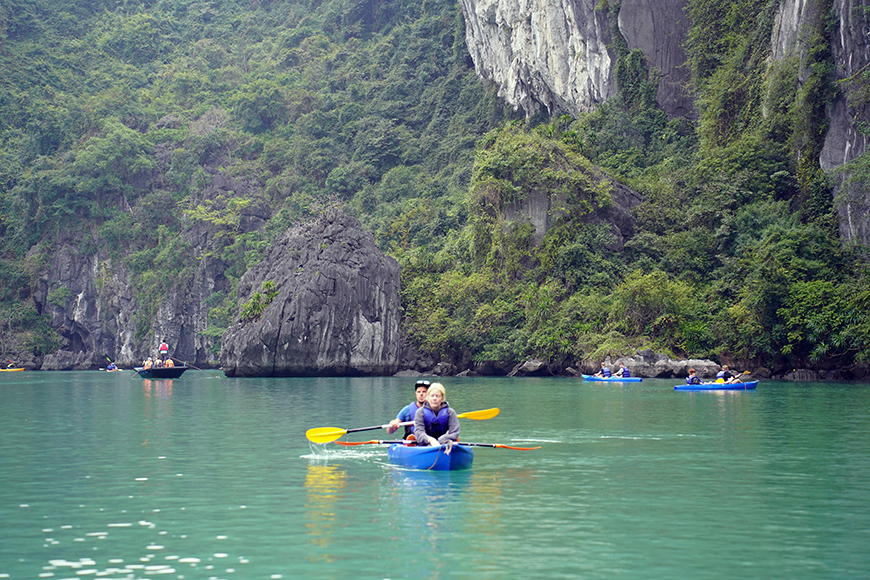 Kayaking in Bai Tu Long Bay, a unique experience - Mr Linh's Adventures
Kayaking in Bai Tu Long Bay, a unique experience - Mr Linh's Adventures
Bai Tu Long, practical information
Access: From Hanoi: bus or car to Ha Long or Van Don (4-5 hours, ~200 km), then a speedboat to Quan Lan/Minh Chau islands (~1-2 hours). From Ha Long: speedboats or local boats from Hon Gai port. Access to the park is via a private or organized cruise ($100-250/person/day depending on comfort). A speedboat from Hon Gai or Cai Rong port takes 1-2 hours.
Accommodation: Hotels and eco-lodges in Van Don (from budget to luxury), resorts on the islands (Minh Chau, Quan Lan), comfortable cruise cabins.
Tips: Opt for stays of 2-3 days to combine hiking, kayaking, relaxing, and meeting people. Eco-responsible tours are recommended.
Ideal season: The bay offers a unique charm in every season. In spring (March-May), mild temperatures and clear skies are ideal for boating, kayaking, and exploring nature in full bloom. Summer (June-August) is lively and sunny, attracting local travelers seeking maritime adventures, but it is also exposed to potential typhoons. Autumn (September-November), and especially October, presents an almost perfect picture: cool air, exceptional light, and ideal panoramas for photographers. In winter, mist envelops the karst peaks in a contemplative atmosphere conducive to tranquility. For international travelers, the period from October to April offers a combination of pleasant weather and optimal comfort, while summer has more economical offers on cruises.
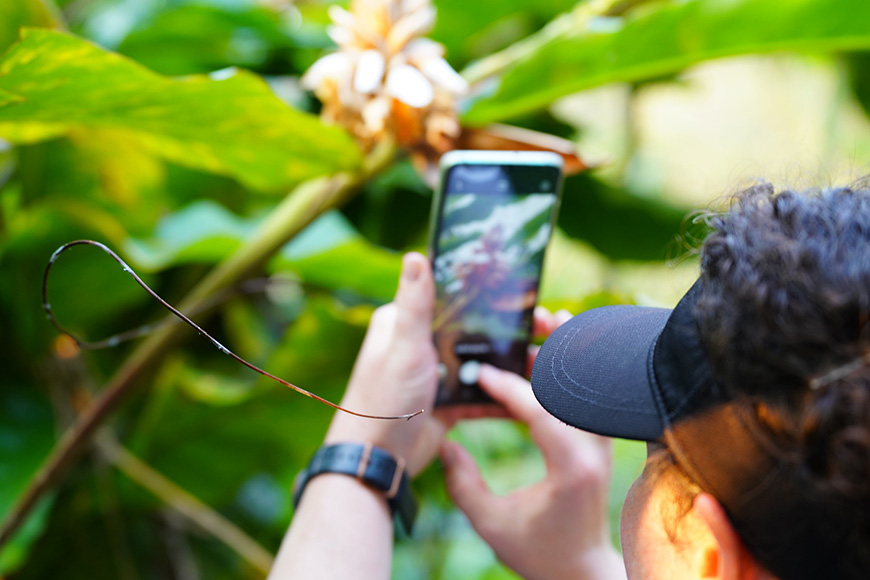 Exploring Vietnam's National Park, a deep and unique experience - Mr Linh's Adventures
Exploring Vietnam's National Park, a deep and unique experience - Mr Linh's AdventuresBeyond the journey, an adventure with meaning
Exploring these parks offers a powerful and magnificent inner journey, combining self-challenge on jungle trails, authentic encounters, and marveling at the power of Vietnamese nature. It's an opportunity to connect deeply with magnificent nature, meet communities with living ancient traditions, and create unforgettable memories. Each of these parks offers a unique experience, whether you are looking for thrills in the caves of Phong Nha-Ke Bang, serenity on the water in Bai Tu Long Bay, or an ethical encounter with wildlife in Yok Don.
Our tours are designed to help you experience these exceptional moments safely.
Let us guide you and prepare for a total immersion in wild and majestic Vietnam!